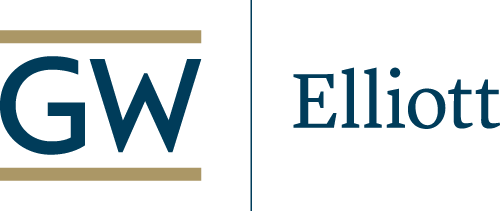 Brennan Hoban, MA International Science and Technology Policy, Class of 2021, #WeAreElliott Current Student
Brennan Hoban, MA International Science and Technology Policy, Class of 2021, #WeAreElliott Current Student
Brennan Hoban is a first-year Masters candidate in the International Science and Technology Policy at the Elliott School, studying how government policy at all levels can improve digital literacy, access to technology, and economic and social inclusion for vulnerable populations. She received her bachelor’s degree in International Relations and Political Science from American University. Brennan currently works at McKinsey & Company in their Public and Social Sector Practice. She has held past positions at the Brookings Institution and has interned for InterAction in Washington, D.C. and for the U.S. Department of State in Rome. Brennan also studied Urdu as a Global Giver Fellow through the Global Language Network and currently volunteers at the National Press Club.
What has been your favorite experience at the Elliott School so far and why?
My favorite experience at the Elliott School has been working with Professor Vonortas on research for the U.S. chapter of the 2020 UNESCO Science Report. It’s been very useful to see how the concepts I’ve learned in class apply to the state of U.S. science and technology in practice.
What courses have you found most helpful in your work/intern/volunteer experiences and how have they been useful?
I’m very interested in how people around the world feel about various issues in science and technology policy but needed to learn a lot more about how to get that information. Professor Kirwin’s Public Opinion and Sentiment Analysis class taught me everything I needed to know about building good surveys, Professor Neu’s Mobile Phones for International Development gave tips on how to access hard to reach groups through their phones, Professor Wilburn’s Quantitative Analysis for International Affairs Professionals showed me how to analysis survey response data once I have it, and Professor Eames and Professor Vonortas’ International Science and Technology Policy, Analysis, and Economic Change courses gave me insight on what questions I should be asking on what science and technology topics. Together, all of these classes gave me all the knowledge and skills I needed to get the information I wanted.
What resources (online or offline) or strategies have proven to be the most valuable in helping you reach academic success at the Elliott School?
All of the professors in the Elliott School are the best resources whenever I need to understand something in the realm of science and technology policy that I’m having trouble wrapping my head around. It helps that they’re so accessible and willing to answer any and all questions. I’ve learned a lot from just asking my professor whenever I’m curious or unsure about something I’ve read.
What advice do you have for prospective students who are on the fence about applying to a graduate program at the Elliott school?
Do it! There’s no better place to study than in the nation’s capital. Everyone in the Elliott School has their finger on the pulse of what’s happening right now so what you learn is current and immediately useful. The International Science and Technology Policy program, especially, is spectacular. Every day I’m reading something in the news or at work that connects to what I’ve been learning in class.
What city outside of the U.S. should people should visit and why?
Everyone should visit Minca, Colombia. It’s not easy to get to, but that’s what keeps it peaceful. Worth it for the waterfalls, chocolate farms, toucans, and stunning sunsets.
Want to connect with current Elliott School students and alumni? Click here to see how!
Find out more about this program by creating a CustomViewbook!
Join us for an information session, RSVP here!
Click here to apply to the Elliott School!
Twitter · Facebook · Instagram
The #WeAreElliott profile series is managed by the Elliott School Office of Graduate Admissions and highlights current students to answer common questions posed by prospective, incoming, and current students. For more information on this series or to submit questions, e-mail the Office of Graduate Admissions at esiagrad@gwu.edu.
The views expressed by students profiled do not necessarily represent those of organizations they work for, are affiliated with, or the Elliott School of International Affairs.
